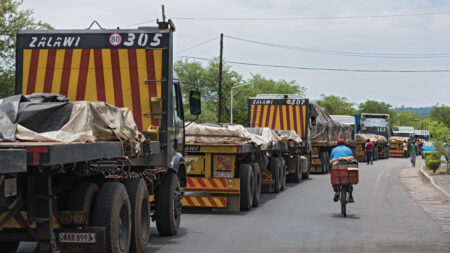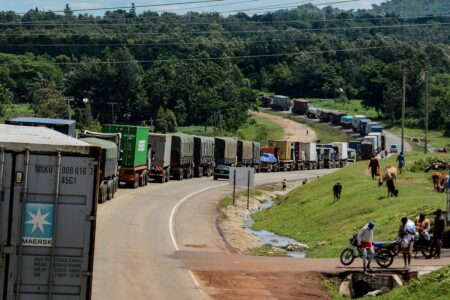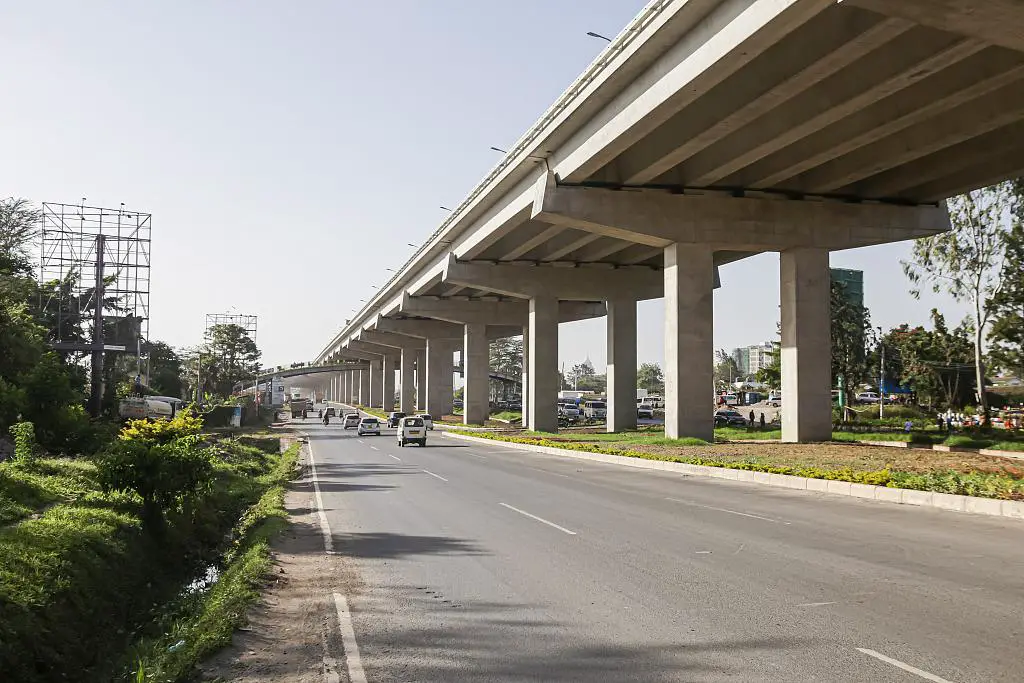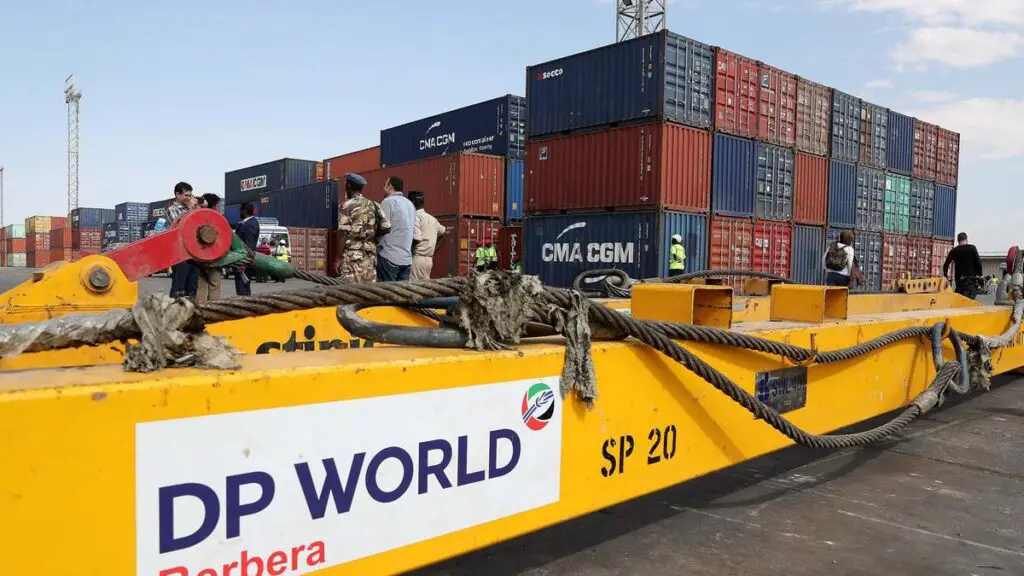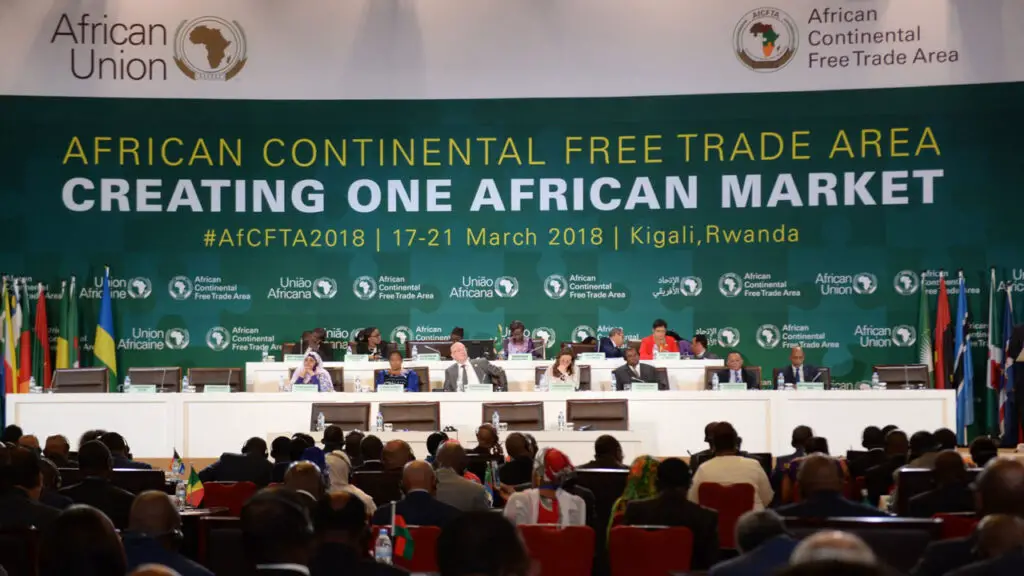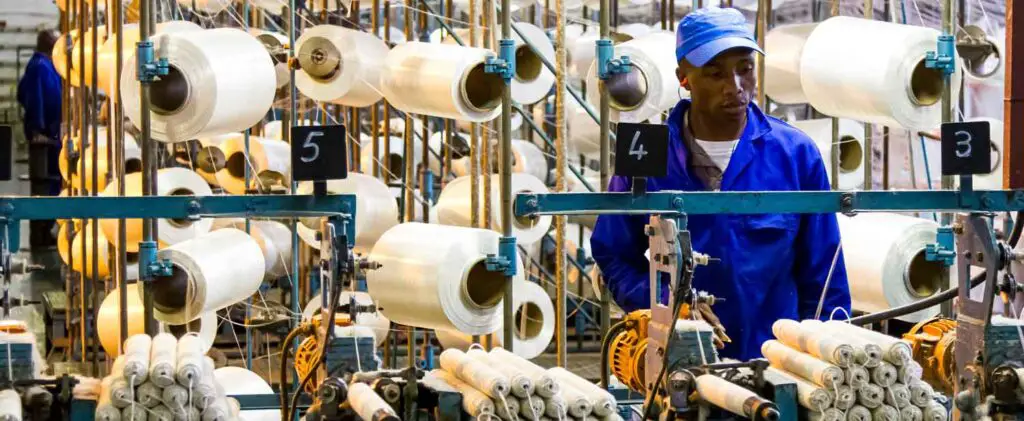- Africa’s new dawn: the rising role of digital and AI in agriculture
- Can Dangote Refinery Transform Africa Energy Ambition
- Gallup Survey: 80 per cent of Kenyan Workers Are Disengaged and Seek New Opportunities
- Madagascar Man Freed from 5KG Tumor After 15-Year Struggle
- How women in Africa are perceived and treated
- Sugar consumption in Kenya to Increase to 1.23 Million Tonnes
- Can Somalia and Turkey Oil deal Bring Change in Somaliland
- Remittances to Kenya dropped to $371.6 million in June, marking a six month low
Browsing: AfCTA
- Africa’s food and agriculture market could reach $1 trillion in 2030 from $280 billion in 2023, with over $60 billion spent on food imports yearly.
- Access to credit poses a significant barrier to private sector investment in Africa’s agriculture sector
- Food and Agriculture Organization (FAO) highlights that around 30 to 40 per cent of food produced in Africa is lost before it reaches consumers.
Africa is a sleeping giant, at least from the agricultural sector. The region’s food and agriculture market could reach $1 trillion from $280 billion in 2023, with over $60 billion spent on food imports yearly.
The numbers in the latter are self-explanatory agriculture in Africa is not only a staple economic activity for most of the population but the region at large.
However, the sector is faced with both promising leads of growth but, at the same time, hurdles, including lack of proper funding leading to …
Despite enormous opportunities, Africa’s supply chains remain inadequate in supporting regional economies. The COVID-19 pandemic exposed the vulnerability of existing African supply chains, sending shock waves across markets. With proper optimization, Africa’s supply chains hold transformative economic potential for the continent.…
The African Continental Free Trade Area (AfCFTA) could deliver far greater benefits in terms of jobs, growth, and poverty reduction than previously estimated – making it a potential game changer for Africa’s economic development if its ambitious goals are fully realized, a World Bank 2022 report indicates.
Two key points stand out in that World Bank statement, first ‘AfCFTA could deliver greater benefits…than previously estimated,’ and second, ‘if it’s ambitious goals are fully realized.’
The first point begs the question how could a continent-wide trade pact be undervalued,’ and the second is the possibility that the one trade zone might not take off as planned.
Also Read: East African SMES ready to tap into the wider African market
Let us look at the AfCFTA goals and determine whether they are indeed ambitious or just realistic and if so, let us review the hurdles that may derail AfCFTA from achieving …
Africa is huge continent with untapped potential. With the rest of the world opening up for the best international trade and travel relations, Africa is learning and following the same path, with countries such as Uganda, Kenya and Rwanda easing entry restrictions by issuing visa on arrival and hence turning themselves towards open borders opportunities as members of the East African Community (EAC).
Unrestricted movement of people and goods between African countries holds the key to unlocking this trade potential. That is why trade analysts are touting the African Continent Free Trade Area (AfCTA) as a game changer in inter-Africa trade.
According to United Nations Conference on Trade and Development (UNCTAD), Intra-African trade is currently low at 14.4 percent of total African exports. UNCTAD estimates that the AfCFTA could boost intra-African trade by about 33 percent and cut the continent’s trade deficit by 51 percent.
The possibility of more open …

–
Uganda border of Malaba. It is one of the businesses in the East Africa
region
Oil in Central Africa
- The agreement reaffirms the US commitment to elevating a strong private sector voice in AfCFTA implementation.
- Through exploring these challenges and opportunities in-depth, the U.S.-Africa Leaders Summit seeks to chart new avenues for improved U.S.-Africa cooperation.
- The business forum focuses on growing the commercial partnership between the U.S. and Africa, with priority discussion topics including the U.S.-Africa commitment to trade and investment.
The United States Chamber of Commerce’s U.S.-Africa Business Center (USAfBC) and the African Continental Free Trade Area Secretariat (AfCFTA) on Wednesday signed a Memorandum of Understanding (MoU) to launch a working group to help advance trade and investment between the U.S. and Africa.
The agreement reaffirms the US commitment to elevating a strong private sector voice in AfCFTA implementation.
Scott Eisner, President of the U.S.-Africa Business Center, said coordination between the private sector and the AfCFTA is key to unlocking Africa’s full economic potential.
“As the world’s leading …
A recent index report showed that Tanzania’s agro sector is mechanizing rapidly on the back drop of value addition mini-factories, the revolution is not unique to Tanzania, it is happening continent wide and North Africa is leading.
Evidence to this fact lies in the pages of the Africa Industrialization Index (AII) report that show more than 35 of Africa’s 52 countries have become more industrialized over the span of the last decade.
The multi-stakeholder report, prepared by the African Development Bank, the African Union and the United Nations Industrial Development Organization (UNIDO), attests to an ongoing industrial revolution in Africa.
The Africa Industrialization Index (AII) uses 19 indicators to rate each country’s level of industrialization ranging from performance of its manufacturing sector, capital, labor to a country’s business environment, its infrastructure and even its entire macroeconomic status.…
The transformative effects of DeFi on advancing financial inclusion, assisting African trade, and strengthening Africa’s economy match the technology with the global sustainability agenda and the UN Sustainable Development Goals. As a result, the industry is an attractive investment for investors, asset managers, and pension funds seeking to make their portfolios more sustainable while directly addressing social implications.…







